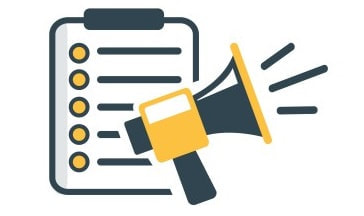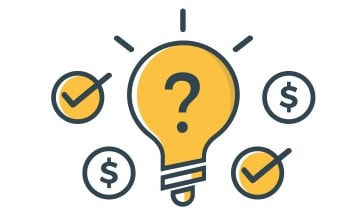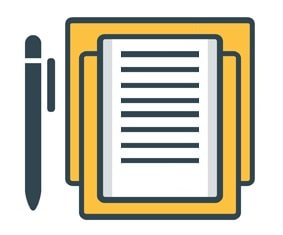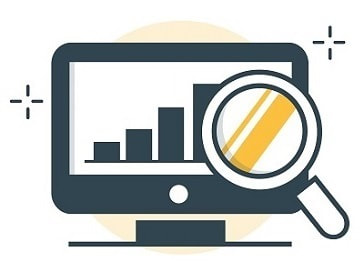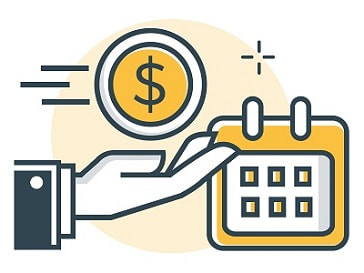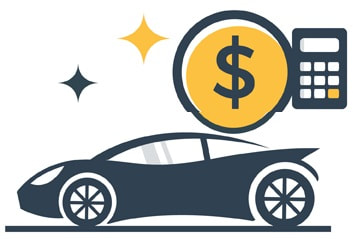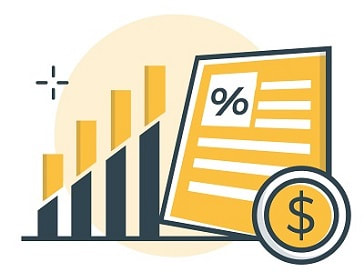20 Money Habits that Keep You Poor
The road to financial freedom isn't easy in New Zealand. Our guide delves into common mistakes that hinder many from achieving true financial independence, offering insights to steer clear and thrive.
Updated 5 April 2024
Overview:
This is the first edition of this guide, and we plan to keep building on it; please contact our research team. with any suggestions or questions.
Important: The word "poor" isn't derogatory; many hard-working New Zealanders find themselves without any spare funds, week after week, year after year. This guide is aimed at anyone actively looking to cut back on non-essentials.
Related Guides:
- New Zealanders without savings are the most financially vulnerable; worryingly, there are more and more of them, per recent research.
- This guide is published to help everyone know that bad money habits can be easily changed, and the results are significant.
- Life is too short to be in debt - debt is super lucrative for lenders (banks, credit card and loan companies, etc) but hard to shake off for everyday New Zealanders.
- Our research into debt repayment apps, or the lack thereof, suggests few repay consumer debts with any urgency once they're on the treadmill. This means less disposal income; after-tax income is directed to interest payments and repayments. It's nothing other than a waste of money - we want to help anyone in this situation change simple habits to get out of it.
This is the first edition of this guide, and we plan to keep building on it; please contact our research team. with any suggestions or questions.
Important: The word "poor" isn't derogatory; many hard-working New Zealanders find themselves without any spare funds, week after week, year after year. This guide is aimed at anyone actively looking to cut back on non-essentials.
Related Guides:
MoneyHub Founder Christopher Walsh Explains Why We've Published this Guide:
|
"New Zealand is undoubtedly one of the best places to live, but it has financial hurdles. The cost of living here is escalating, creating financial difficulties for those not vigilant with their finances, and for a lot of people who are."
"I've always held a firm belief that every dollar counts. It's not just about the amount but its value in shaping our future. I encourage everyone - friends, family, and readers - to scrutinise their bank statements regularly. Go line by line. Question every expenditure. It's an eye-opening exercise. What you'll find might surprise you: those small, seemingly inconsequential expenses, when accumulated, can make or break a budget." "Money, like water, can slip through the tiniest of cracks. We live in an era where automated payments, subscriptions, and impulse online purchases are the norm. While convenience is king, complacency can be costly. Failing to review and reassess where your money goes periodically is one of the quickest routes to financial strain. Remember, every dollar that slips away unnoticed is a missed opportunity for saving, investing, or using it to enrich your life truly." "In this guide, we delve deep into the common mistakes that can unknowingly keep one tethered to financial mediocrity. Because understanding these pitfalls is the first step towards a brighter, more secure financial future in our beloved New Zealand." |
Christopher Walsh
MoneyHub Founder |
Twenty Money Habits that Keep You Poor
Paying Yourself Last Keeps You PoorThere are two types of people. Those who pay themselves last are people who get their salary and right away pay their rent/mortgage, bills, credit card balances due, subscriptions, food costs, social costs, entertainment, etc. Whatever is left (if anything), they save. Poor people don't realise this means they'll always be short of money.
The second type of people pay themselves first. This means putting at least 10% of their salary the minute they get paid. Then, everyone else can be paid as it falls due. Important: With the current cost of living, saving 10% of after-tax income is ambitious. However, it's a target to aim for and eliminate non-essential spending. Why does paying yourself first work? You prioritise savings and allocate at least 10% of your monthly payday into a savings fund. Call accounts and term deposits now pay at least 5% p.a. interest, so savings generate more savings. Also, so many New Zealanders don't realise what they're spending and never have enough money at the end of the month. |
Getting Comfortable with Credit Card Debt Keeps You PoorCredit cards generate so much money for the banks – our research on this problem for New Zealanders was published in Stuff.co.nz here. So many New Zealanders roll credit card debt month after month, making the minimum repayment (2% to 5% of the balance) or something similar. This keeps people poor – credit card interest rates are around 20% to 25% p.a., meaning a $5,000 credit card balance left unpaid costs about $1,000 to $1,250 a year to operate. It's a big rip-off, and too many people get trapped.
The solution is uncomfortable but simple – if you can't afford to pay for it in cash/debit card, don't buy it. If you've no funds available to pay off what you add to a credit card, you're paying to spend your money, and any rewards or cashback you earned are irrelevant. Don't do it. Our guide to debt repayment apps has trusted tools that help to visualise and accelerate debt repayments. Christopher warns: "Credit cards can be double-edged swords. While they offer convenience and rewards, the trap lies in the interest rates. By only paying the minimum, you're essentially prolonging your debt and paying several times over for the items you've bought. Always aim to clear your balance - it's a small discipline that can save you a lot in the long run. The debt is never worth it and it can hang around for years". |
Not having an emergency fund (3 to 6 months of living costs)Unexpected expenses cost more than you think without a cash buffer in an on-call savings account. You're instantly paying interest if you have no savings and need to pay for something on a credit card. Too many people just use credit cards and end up poor for years, struggling every week with bills and going without needs when wants are prioritised.
By paying yourself first (as outlined in the first habit), you can build up an emergency fund to protect you from debt. Christopher comments: "The absence of an emergency fund has repeatedly emerged as a primary vulnerability for many New Zealanders, as outlined in this 2023 RNZ story. Without one, even a minor unexpected expense can plunge you into debt. By setting aside funds for unforeseen circumstances, you're preparing for the unexpected and affording yourself the peace of mind that can't be quantified in monetary terms. It has to be a priority over any 'want'-type purchase". |
Not Knowing or Understanding Your Income and Expenses Keeps You PoorThe reality is the more you earn, the more you spend, so it's easy to get lost. Many New Zealanders have no idea where their money goes. To avoid this, you need a budgeting app and be in control of your finances. You need to know how much you're earning, pay yourself first, then input all your expenses.
People who understand their money make more money by spending less. This is different from people who want to be rich and have no idea how to get there because all their earnings are spent without consideration or oversight. Christopher comments: "Too many people have no idea what they earn and spend because they never look at their bank statements. The best way to cut back on expenses is to get into your bank's app and go line by line through your bank account and credit card. The more familiar you are, the more you'll change your behaviour. "Many believe budgeting is a tedious task, but budgeting is empowering. It gives you control, clarity, and a sense of direction. When you understand where your money goes, you're in a position to make informed decisions that can profoundly influence your financial health - understanding the numbers gives you that power and confidence". |
Having Expensive Hobbies Without BudgetingWe want people to be happy - there's no point in having money in the bank and missing out on enjoying life. Indulging in hobbies is essential for personal growth and relaxation. However, when these hobbies start to bleed your finances dry without any budget or restraint, it becomes a problem.
Many hobbies are cost-effective, but others can be debt-inducing. The number of financed boats and jet skis is one example. A hobby is meant to provide relaxation, not financial stress, and there's no point in incurring debt for ski weeks or fishing expeditions when you face interest rates of 20% p.a. repaying it. |
Assuming Only Saving Money Increases Wealth and Not Focusing on Earning MoreWhile saving and cutting back on poor-value expenses is crucial, focusing on earning more is even more important. This can be achieved by looking into upskilling for a better-paying job or investing in assets that generate passive income. Nothing is guaranteed in New Zealand's labour markets, and many employees think they're underpaid. Being ahead of the curve and upskilling, moving job or side-hustling something high-value will boost income and get you further in today's (and tomorrow's) economy.
|
Waiting Too Long to InvestInflation makes money lose its value - the longer you wait to invest, the more purchasing power your money loses. Compounding interest generates returns day after day. Starting your investment journey early, even with small amounts, can lead to significant growth over time, but too often, New Zealanders delay taking the first step.
For example, term deposits now pay interest rates close to the OCR, and it's satisfying to lock some money and see it earn interest - money making money in the purest form. Our View: KiwiSaver is, for most people, unlikely to provide a comfortable retirement even with NZ Super combined. We don't see it as a backstop for retirement for many reasons:
These all limit KiwiSaver's effectiveness as a retirement fund, hence the low average balances. We believe most New Zealanders are undersaving with KiwiSaver. It's arguable that if you want to grow a nest egg, the best way is to start today with a deposit into an on-call savings account or something similar. Too many people think you need a big and round number to invest - you do not. Christopher comments: "The power of compounding interest is incredible, but it needs time to work its magic. Many New Zealanders delay retirement savings, thinking they can play catch-up later. It is so hard to do when you're behind. The earlier you start, the easier and more fruitful your journey becomes. Time is an asset; please use it wisely". |
Dating Someone Who Has No Understanding of Money or CostsRelationships play a significant role in your financial well-being. If you're with someone who doesn't understand or respect money, it can lead to financial drain and emotional stress. Financial compatibility or at least a mutual understanding is, arguably, as important as love.
Christopher shares: "Too many relationships regress and become unpleasant because of money - it's a major reason for breakups and divorces. Where there is conflict, you'll usually have a spender and a saver unable to come to an agreement. Money (or a lack of it) causes tensions, so it's critical to align your financial goals and habits. |
Avoiding Money ConversationsDiscussing money matters can be uncomfortable for many. Whether it's salary negotiations, discussing finances with family, or seeking financial advice – avoiding these conversations can cost you in the long run. Make it a habit to have open and honest financial discussions.
|
Falling for 'Keeping up with the Joneses' Syndrome Will Always Keep You PoorIt's easy to get caught up in societal pressures and start living a lifestyle you can't afford just to keep up appearances. Buying the latest tech, going on lavish holidays, or driving the newest cars on loan - all these can rapidly deplete your wealth. Remember, wealth is not what you spend but what you save and invest. Live within your means and prioritise your financial well-being over societal expectations.
|
Neglecting Financial EducationMany New Zealanders often overlook the importance of educating themselves about finances. By not understanding fundamental financial concepts, you're more likely to make poor money decisions. Spend time learning about investments, interest rates, taxes, and other essential financial topics. There are numerous online resources, workshops, and seminars available in New Zealand that can guide you on this journey.
Christopher comments: "Knowledge of financial matters gives you immediate power. Many people avoid understanding basic financial concepts, thinking it's too complicated. However, the basics can take you from being bad with money to financially resilient. I established MoneyHub to help people get empowered from the convenance of their phone, tablet or computer. The information published is designed to provide a foundation upon which sound financial decisions can be made". |
Ignoring Small Daily Expenses and Never Saying NoThose daily coffees, snacks, and impulse buys add up over time. By not keeping track of these seemingly insignificant expenses, you might be draining a significant portion of your income without realising it. Using budget tracking apps or simply keeping a daily expense diary can help bring awareness and control.
|
Scams are all around, and there is no shot cut to wealthFinancial scams are more prevalent than ever - criminals even use the MoneyHub name and call people hoping to cheat them and there's nothing we can do about it. Whether it's fake investment opportunities or phishing scams, many New Zealanders lose money to fraud and are too ashamed to tell the story. Regularly educating yourself about common scams and being cautious with unsolicited offers can protect your finances.
Another scam, albeit not as obvious, is the 'get rich by investing with me' offers you see on Instagram, YouTube, TikTok and other platforms. Many 'gurus' offer their 'insights' - be very careful. More money is lost than made chasing fast money. Christopher comments: "The allure of fast wealth can be tempting, but these schemes often end in disappointment. Genuine wealth-building is a marathon, not a sprint, and there are no short-cuts. Be wary of anyone promising quick riches. It's essential to do thorough research and trust your instincts". |
Not Tackling Addictions Head-OnAddictions can have devastating impacts on an individual's finances. Whether it's gambling, drugs, alcohol, or other forms of addiction, the financial drain is often significant and can spiral out of control rapidly. Beyond the immediate monetary costs, addictions can lead to missed work opportunities, medical expenses, legal troubles, and other related costs. Moreover, the emotional toll can lead to impulsive financial decisions, further exacerbating the financial strain.
Moreover, addiction doesn't just affect the individual. Families can be pulled into the financial black hole, often using their savings or taking on debt to help their loved ones, only to find the cycle repeating. Intervention and professional help are often necessary, but the first step is always acknowledgement - it's far from easy, but if you don't, there's no way up. Additions often cause huge financial hardship. Christopher comments: "Many people have addictions - it's not a character flaw; it's a complex interplay of factors, including personality traits, genetics, and environment. However, ignoring or downplaying these addictions is one of the surest ways to jeopardise financial well-being. It's essential to face them head-on, seeking help where needed, and understanding that financial freedom becomes even more elusive when battling untreated addictions." |
Making Emotional Financial DecisionsWhether it's panic selling stocks during a market downturn or making an impulsive large purchase, emotional decisions can negatively impact your finances. Always take a step back, consult with a financial advisor if necessary, and make well-informed decisions.
Christopher comments: "Money decisions driven by fear, greed, or any strong emotion rarely end well. Whether it's panic-selling during a market dip or making an impulse purchase because of a 'limited-time offer,' it's crucial to stay level-headed. Take a step back, consult with trusted advisors, and ensure you're making decisions grounded in logic." |
Not Planning for RetirementMany individuals push retirement planning to the back burner, thinking it's too far off to worry about. However, the earlier you start planning, the better positioned you'll be in your golden years. Consider your desired retirement lifestyle and start planning and saving accordingly.
Christopher shares his fears: "One of the most underestimated money decisions many make is sidelining retirement planning, deeming it a concern for the distant future. New Zealand's cost of living gives an excuse, while retirement seems years ago. However, time flies, and living costs continue to rise". "Every year of delay can mean sacrificing potential compound interest, missing out on KiwiSaver benefits (if you're not joined) or facing higher risk due to a shortened investment horizon. NZ Super is not enough to have a lifestyle - it's there to pay bills. Do you want a retirement with choices or one with misery? Achieving retirement freedom doesn't happen overnight, but pushing retirement planning to the back burner risks your desired future. The earlier you act, the more cushioned and prepared you'll be, ensuring you don't find yourself financially constrained when work is no longer an option. Please don't delay". |
Not Maximising Employer BenefitsMany New Zealand employers offer benefits like KiwiSaver contributions, health and lifestyle benefits, and/or bonus schemes. Not taking full advantage of these is leaving money on the table. Always know your employment benefits and ensure you leverage them to their full potential.
Christopher comments: "KiwiSaver is a must - I am always amazed by the number of people who don't contribute, as outlined in this August 2023 report. It's free money - while you forgo 3% of your income upfront, the rewards are a nest-egg later on. Yet there's a concern around the safety of KiwiSaver, myths that the government will interfere and take the money and similar thoughts". "The reality is KiwiSaver is just like any managed fund investment, except your employer contributes (at least) 3% to your fund, and the government even adds in $500+ every year if you make the minimum contribution. If you do one thing, please consider joining KiwiSaver if you haven't already. Our KiwiSaver Facts guide has all the details". |
Not Automating Savings or InvestmentsAutomating your savings or investments can be a game-changer. It ensures consistent contributions, takes emotions out of the equation, and can capitalise on dollar-cost averaging in investments. Our guide, How to Invest Regularly with Auto-Invest, has more details and is a strong starting point.
Know This: If you want to auto-invest in your KiwiSaver fund beyond your employer/employee contributions, you can do this too. However, once the money is transferred, there are few opportunities to withdraw it (outside of first home purchase, retirement, emigration, hardship or death). For this reason, auto-investing in funds and savings accounts or term deposits remains popular with New Zealanders with a long-term focus. |
Being Brand Loyal Without ReasonBrand loyalty can often lead to paying a premium without added benefits. Whether it's utilities, insurance, or everyday products, regularly shopping around for better deals can save a substantial amount over time. Brand loyalty shouldn't be a priority, especially if you can't afford it - there are low-cost alternatives for everything.
Christopher comments: "Branded stuff costs more - but is it any better? I'm not so sure. We live in a world of brands, but buying into the idea that the price reflects the quality is less popular among younger New Zealanders. We know from our research in almost every financial product that prices vary - challenger brands/companies often deliver better deals than their big brand competitors. Other than warm clothing and outdoor stuff, I rarely buy anything branded and function just fine - we can live without brands". |

